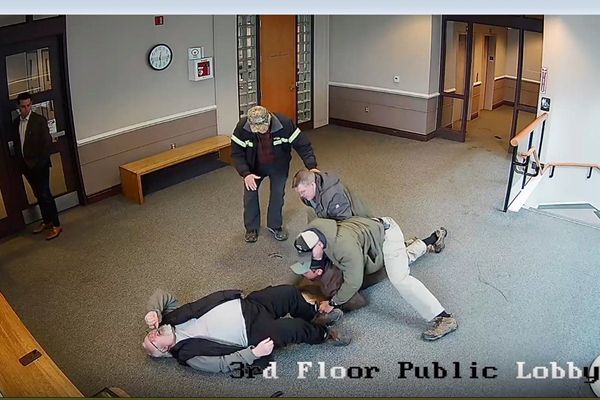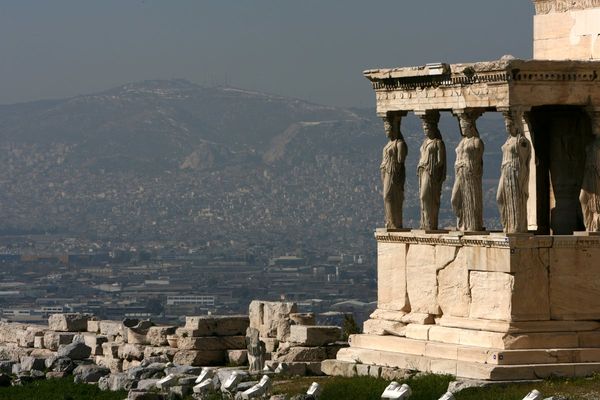
When the chips are down, the pen is a little dry or I’ve needed a cheap laugh from an unforgiving audience, over the best part of the past 14 years I’ve been able to rely on one ace: Kwasi Kwarteng. The first Black chancellor and – still – the most powerful Black person in British history, however briefly.
I could have been kinder and gentler. Using him as an illustrative point in Think Like a White Man (my 2019 satire on being Black in the professional world), I compared Kwarteng’s hairline to the wonky lines of a colonial border, among many other quips, yet my critiques and roastings of the talented Mr Kwarteng were never personal, as I’d never had the opportunity to meet him properly. That all changed at 5:55am on Thursday at the west London studios of Good Morning Britain, where we were both booked to face off for the political panel.
First impressions: unhelpful as it may sound, Kwasi Kwarteng is best described as “different”. Alternative in a manner unlike anyone I think I have met before. He is the usual cocktail of upper-middle-class rightwing Black conservatism: contrarian, excessively confident, assertive, stubborn, seemingly confused in places and about their place, full of easily compromised yet rigidly presented principles, eager not to get found out, and intellectually robust on many things but usually not on race (a subject they seem to be professionally obliged to be obtuse on).
But there was an added serving of eccentricity to Kwarteng that makes him unique from many of his peers. For example: for a post-political rehabilitation exercise, most fallen politicians would risk limbs on Strictly Come Dancing, dignity on Celebrity Big Brother or even chew through insects on I’m a Celebrity … Get Me Out of Here! over five back-to-back episodes of Good Morning Britain. But, as I say, Kwarteng is different.
Upon arrival, he filled the green room with his considerable height more than presence or personality. Friendly but keeping a comfortable distance, there was no hint of the physical or telepathic camaraderie Black people often show each other in such situations – though, fair to say, there was no hint of scorn either. Or even familiarity. Despite all the public brickbats, he seemed keen that I should know that he didn’t have a clue who I was (repeatedly mispronouncing my single-syllable name on air to emphasise this point).
On air, was where it got weird. Kwarteng spoke of “accountability” and “responsibility” yet then fell back on arm’s-length language when he should have been at his most accountable. “In terms of the strategic goal to get growth by supply-side reforms and to lower the tax burden, I still believe in that. But the way it [his disastrous mini-budget] was rolled out was frankly not disciplined enough and not rigorous enough.” Rolled out? Who rolled it out? K Kwarteng, wasn’t it?
I asked if he was embarrassed by the budget debacle or its impact. In a flash, he said he wasn’t. That surprised me. It seemed to surprise Adil Ray, the show’s presenter.
Was it arrogance? Lack of awareness? Strategic amnesia? All of us wondered, but no one knew for sure and he wasn’t about to say.
Every fibre in my body suggested I shouldn’t ask, but we had never met before so I couldn’t help but pose the most taboo question you could ask any Black or Brown person in politics, especially Tories: did he regret the sentiment so often expressed, that he and his rise had served as cover for racist policies? He bluntly denied ever being the face of such policies. And yet he remains an unembarrassed staunch supporter of the deeply racist Rwanda plan, and laments its cancellation. How to square the circle? That’s one for a more specialised mind than mine.
By the time our half-hour sparring session had ended, the talented Mr K and I were as cordial as we could be, given the circumstances. Who knows what the future holds, perhaps we could do a podcast together: “Life in the Long Grass”, perhaps, or “The Rest is Interest Rates”.
Off-air he persisted with the challenge he had posed for me during our discussion – to get involved in politics rather than taking the easy route of commenting from the sidelines. That’s fair enough, but something of a strange challenge from someone who was ejector-seated out of frontline politics and now seeks home in the commentariat.
Our meeting was insightful, and I found him charming in a very “different” manner. He is far from a sympathetic figure, but then I doubt he seeks sympathy. Or even camaraderie.
We bade each other farewell and left the studio for our cars: me heading to the office, him, I guess, looking for a route back to respectability. He’ll need a lot of luck and a really good satnav.
Nels Abbey is an author and broadcaster
Do you have an opinion on the issues raised in this article? If you would like to submit a response of up to 300 words by email to be considered for publication in our letters section, please click here.










